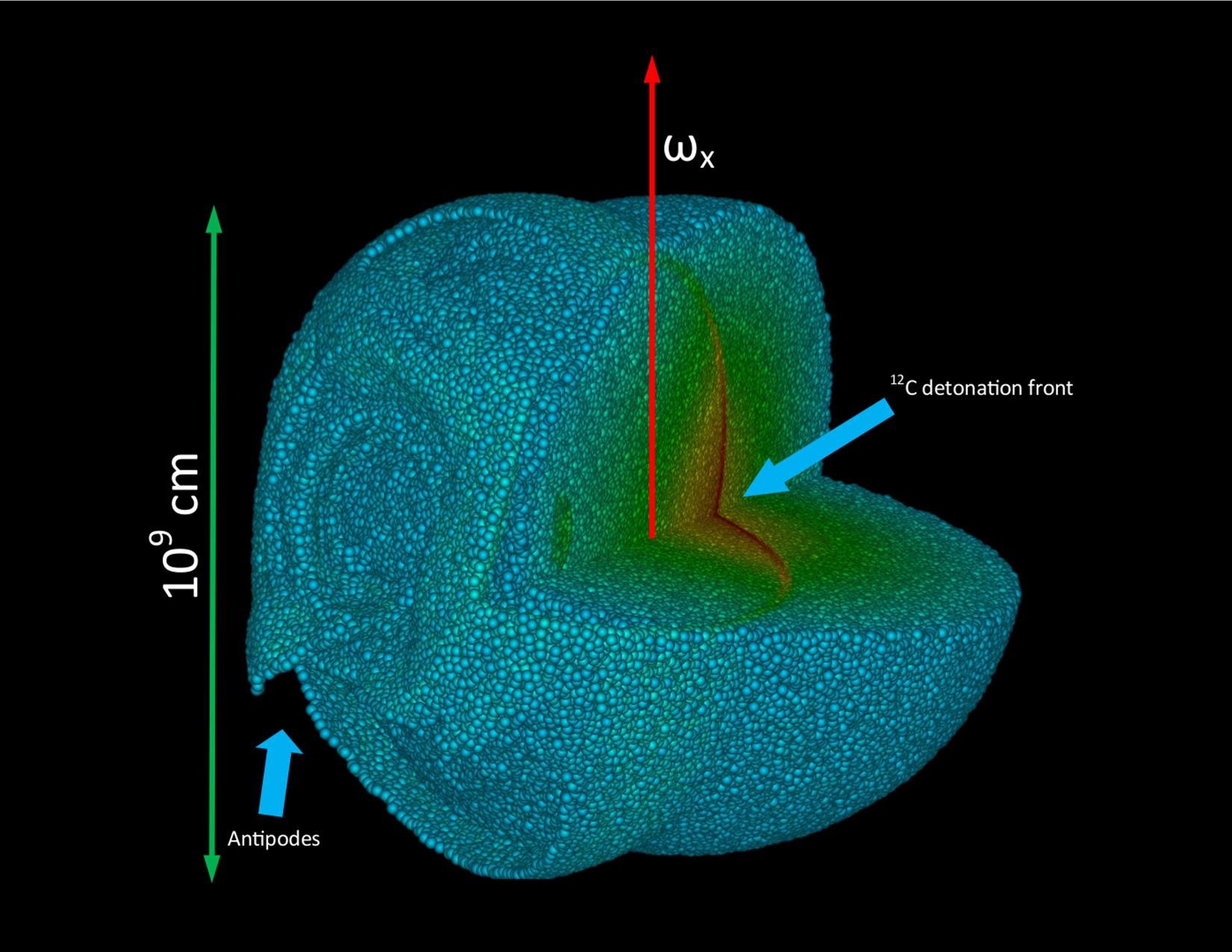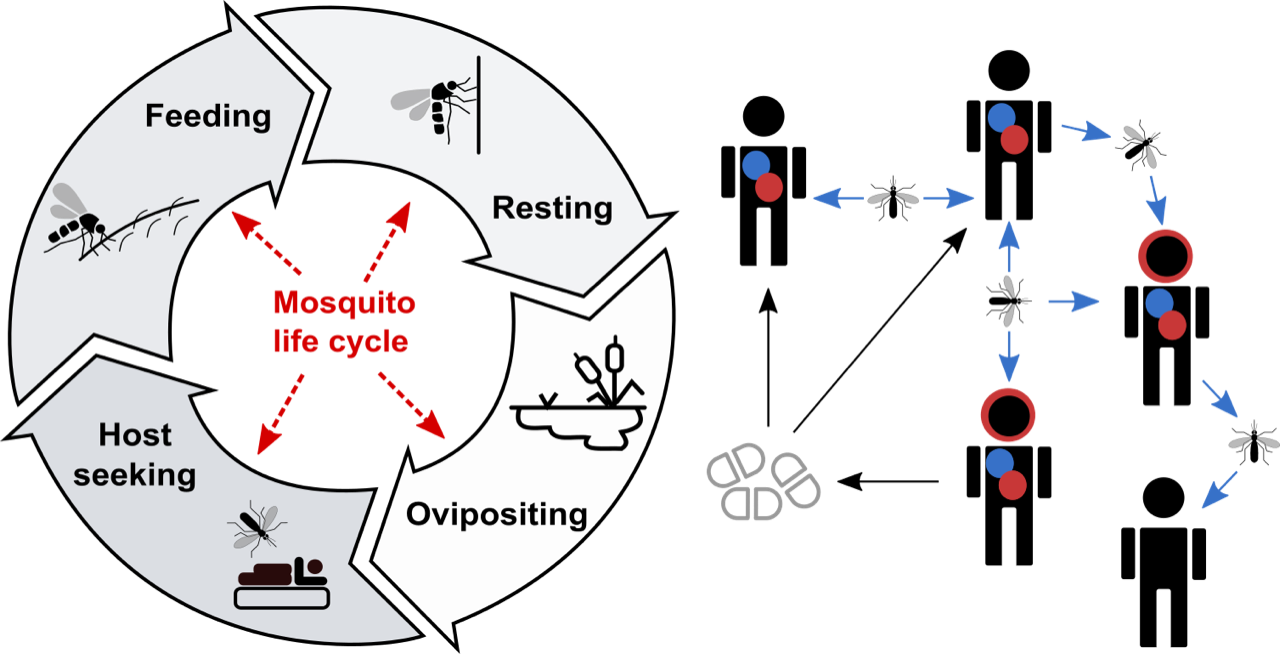
Understanding how fluids and plasmas behave under complex physical conditions is on the basis of some of the most important questions that researchers try to answer. These range from practical solutions for engineering problems to cosmic structure formation and evolution. In that respect, numerical simulations of fluids in astrophysics and computational fluid dynamics (CFD) are among the most computationally demanding calculations in terms of sustained floating point operations per second (FLOP/s). The SPH-EXA project is founded by the Platform fro Advanced Scientific Computing (PASC), and it aims at the development of a scalable and fault tolerant Smooth Particle Hydrodynamics (SPH) co-design code that can benefit from the next generation Exascale supercomputers. The figure shows a 3D cut of a rotating White Dwarf star undergoing a Carbon detonation that will lead to a Type Ia Supernova explosion. Each sphere represents an SPH particle and color-coded is baryonic density. This simulation was done with the SPHYNX code, and it was possible thanks to its scalability and performance improvements made within its participation in the SPH-EXA project.
The SPH-EXA project website

OpenMalaria is an open-source C++ program for simulating the dynamics of malaria transmission and epidemiology and how they are impacted by of interventions. It is based on microsimulations of Plasmodium falciparum malaria in humans, developed initially for simulating malaria vaccines. The original model is described here. The dynamics of malaria parasitaemia in the course of an infection, of the mosquito life-cycle the processes of transmission between humans and mosquitos, of anti-malaria immunity, of the processes leading to illness and death are all simulated, along with those of the effects of interventions targeting the parasite or the mosquito vector. The model can simulate malaria in village, or district size human populations, and has been used to investigate multiple questions on disease dynamics or the use of existing and new interventions. Current releases, references and details of using OpenMalaria can be found here.
Projects by Swiss Tropical and Public Health Insitute.